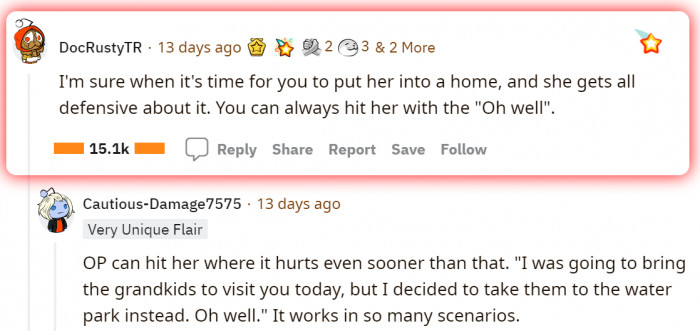This Mom Surrendered The Family Dog To A Shelter Without Informing Anyone, Now Her Child Is Heartbroken
Dogs are often referred to as man's best friend. They provide us with companionship, love, and security. For many people, their dog is a member of the family.
Their presence in our lives can have a profound impact on our mental and emotional health. In fact, studies have shown that owning a dog can reduce stress, improve moods, lower blood pressure, and provide other health benefits.
The bond that exists between a dog and its owner can be incredibly strong. So imagine the heartbreak that a child feels when they are separated from their dog by someone they trust.
That's the situation facing one Redditor who came home to find that the family dog was missing. Upon inquiry, he discovered that the dog had been surrendered to a shelter by his mother.
What made this so infuriating for the teen was that their mother never consulted anyone first. One moment the dog was there, and the next, it was gone.
The child is now heartbroken and struggling to understand why their mother would do something like this without any warning. It's a decision that will no doubt have a lasting impact on their relationship.
Let's get into the nitty-gritty of this story, shall we?
For more info: Reddit
This would be heartbreaking for any dog lover


The Reddit community had a lot to say about this mother's decision. We've compiled the most interesting reactions for you:
"This is the type of shit insane parents do, and when you cut contact with them, they go 'what did I ever do to you?' gaslight"

The Impact of Emotional Decisions
The decision to surrender a beloved family pet without informing other household members can stem from emotional impulsiveness, often leading to significant relational fallout.
Research from the Journal of Family Psychology suggests that such decisions often come from a place of stress or overwhelming emotions, indicating a lack of foresight regarding their impact on others.
This impulsivity can create rifts in family dynamics, highlighting the need for open communication in decision-making processes.
The Impact of Family Decisions on Children's Emotions
Family dynamics significantly influence children's emotional development. When a parent makes unilateral decisions, such as surrendering a family pet, it can lead to feelings of betrayal and abandonment in children. Research from the University of Virginia suggests that children thrive in environments where their emotional needs are acknowledged and respected.
In this case, the child’s heartbreak is a natural response to a perceived loss of trust and security, which can have long-lasting effects on their emotional well-being.
"Going there just made me sad because all those moms are like mine"

"I don't want to insult your Mum..."

"That’s the kind of attitude that results in kids not ever visiting or calling when they’ve grown"

Moreover, the psychological concept of emotional dysregulation may play a role here, as individuals who struggle to manage their emotions may act rashly in stressful situations.
Studies indicate that individuals who lack emotional regulation skills are more likely to make decisions that have lasting negative consequences.
Understanding this can encourage families to adopt healthier communication strategies when faced with emotionally charged situations.
Moreover, the act of surrendering a beloved pet can create a ripple effect of emotional distress. Studies indicate that children often form strong attachments to animals, viewing them as companions and sources of comfort. The sudden loss of that attachment can lead to grief similar to the loss of a family member, impacting the child’s ability to cope with future changes and stressors.
Understanding the significance of these bonds can help parents navigate such decisions with greater sensitivity.
"She’s a f**king sociopath"

OP had a lot to say about his mom

Turns out OP's mom was the one who got the dog without them asking and still went on to give it away

The Value of Family Communication
This scenario underscores the importance of family communication and shared decision-making.
Research has shown that families who engage in collaborative discussions about significant decisions tend to have stronger bonds and better overall emotional health.
Encouraging family meetings can allow everyone to voice their opinions and feelings, leading to more thoughtful and inclusive decision-making.
The Importance of Open Communication in Families
Open communication is essential in family settings, particularly when making significant decisions that affect all members. Psychologists emphasize that involving children in discussions about family matters can foster a sense of inclusion and respect. According to research published in the Journal of Family Psychology, children who feel heard are more likely to develop healthy emotional regulation skills.
Creating a family culture that values communication can help prevent misunderstandings and promote emotional resilience among children.
These Redditors are giving OP ideas on how to get revenge for what their mom did

"Pets (especially your first) are family, and you don’t ditch family like that"

A sad tale of another mom putting down a pet

To prevent similar situations, families can benefit from establishing clear guidelines about pet care and responsibilities.
Studies indicate that having defined roles within families can reduce conflict and enhance cooperation.
This can create a sense of accountability and shared responsibility, ensuring that all members feel valued and heard.
Additionally, encouraging children to express their feelings about family decisions can facilitate emotional healing. Experts suggest that parents should validate their children's emotions, allowing them to process their feelings and understand that it’s okay to feel hurt or sad. This support can help children develop emotional intelligence and resilience as they navigate their feelings about the loss.
Engaging in family activities that honor the pet's memory can also provide a platform for emotional expression and closure.

"When I was 19, my grandma put down my cat that I had had from the age of 4 without telling me"

"Seriously, I'd go to that shelter and see if he's still there"

Emotional Consequences of Pet Surrender
Surrendering a family pet can lead to emotional distress for children and other family members who may feel abandoned or betrayed.
Research in child psychology indicates that children often develop strong attachments to pets, and the loss can significantly impact their emotional well-being.
Understanding these dynamics is essential for families to navigate grief and loss constructively.
Practical Approaches for Family Healing
To foster healing after a family loss, families can create rituals or memorials that honor the pet's life. This might include sharing favorite memories or creating a scrapbook together. Engaging in these activities can help children articulate their feelings and foster a sense of closure.
Moreover, parents should remain available for ongoing discussions about loss and grief, allowing children to revisit their feelings as they process their experience over time. This ongoing support can be crucial for their emotional development.
"Am I the only one who thought, damn, it took OP a week to notice?"

"Your mom is cruel af"

"Abandoned a member of my family... Oh well"

Additionally, families can benefit from exploring grief counseling or therapeutic interventions to process their feelings about the loss of a pet.
Studies show that therapeutic support can facilitate healing and help family members articulate their emotions surrounding the loss.
Encouraging open discussions about grief can create a supportive environment for healing.
Ultimately, prioritizing emotional well-being in family decision-making is vital for fostering healthy relationships. Encouraging empathy and understanding can help families navigate challenging situations together. By creating an environment where feelings are validated and discussed openly, families can strengthen their bonds and promote emotional resilience.
Incorporating these practices can lead to a more supportive family structure that nurtures emotional growth.
"Anyone who dumps animals at already full shelters for no reason is truly evil"

"I'm angry and sad and feeling hurt for you"

OP posted a picture of the cute critter with some touching words. Sadly, they were letting go... for now.
"I swear I’m gonna miss him! <3 I hope he’s okay"

Long-Term Effects of Impulsive Decisions
Making impulsive decisions can have long-term ramifications on family relationships, including trust issues and emotional disconnection.
Research from the Journal of Family Issues suggests that impulsivity is often linked to regret and dissatisfaction in relational dynamics.
Understanding the implications of such decisions can motivate families to reflect more thoughtfully before acting.
This story is a heart-wrenching one, but it also highlights the importance of communication within a family.
If you have an important decision to make that will impact other members of your family, be sure to talk to them about it and get their input. That way, there won't be any surprises—good or bad—down the road.
What's your take on this mom's decision? We'd love to get your thoughts in the comments section below.
Psychological Analysis
This situation illustrates the profound effects of family decisions on children's emotional health. It's essential for parents to engage in discussions that consider children's feelings, allowing them to process emotions related to changes within the family. Prioritizing emotional openness can help cultivate resilience and strengthen family bonds.
Analysis generated by AI
Analysis & Alternative Approaches
In conclusion, the impact of family decisions on children's emotions cannot be overstated. As Dr. Lawrence Cohen, a child psychologist and author of "Playful Parenting," emphasizes, "When children feel heard and understood, they are more resilient during transitions." By fostering open communication and emotional validation, families can significantly enhance their dynamics. Prioritizing children's emotional needs allows families to navigate changes more effectively and strengthen their relationships over time, as noted on Playful Parenting.
Ultimately, cultivating an environment of emotional awareness and open communication can lead to healthier family dynamics.
By training family members to discuss their feelings and challenges openly, families can foster better understanding and reduce the likelihood of impulsive decisions.
Building emotional intelligence within families can strengthen relationships and create a supportive atmosphere for all members.
Analysis & Alternative Approaches
Research indicates that emotional impulsiveness can lead to significant relational challenges within families, particularly regarding shared responsibilities like pet care.
According to studies published in the Journal of Child Psychology and Psychiatry, fostering open dialogue and shared decision-making can mitigate these issues and enhance emotional health.
Ultimately, prioritizing communication and emotional understanding is key to maintaining strong family bonds.



